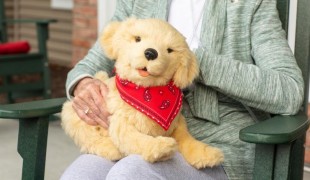- 7851
- 574
- 15
- 13
- 0
- Help Ukraine
About the solution
The product consists of a light therapy device that employs white Light Emitting Diode (LED) technology for treatment of a variety of light-deprived conditions such as SAD.
After being diagnosed, he refused to follow the standard treatment. “I politely declined the offer to put me on Prozac, and as luck would have it, this forward-thinking shrink invited me to try bright light therapy. At the time, I was a complete skeptic, "Sounds like snake-oil to me!" But I was also desperate. And the first day, as I sat in front of this big clunky 'light box' for a half hour, I felt like something was literally receding out of my body – to my amazement, my energy came back, the fog in my head cleared and suddenly, the glass was half-full again instead of half-empty. I felt like I was back in L.A. I dismissed my instant response as the 'placebo effect' – wishful thinking -- and stopped using the light. But my symptoms returned with a vengeance. So I switched it back on – and got my life back. (Only later did I come to understand that this powerful reaction to the bright light was due to two changes taking place in my body: the sleep-inducing hormone melatonin being suppressed and the 'feel-good' neurotransmitter serotonin being elevated”, the inventor explained.
The Litebook also holds promise for potentially helping cancer patients suffering from the fatigue often brought on by chemotherapy treatment— A symptom that is similar in many ways to the feeling that results from severe jet lag. In much the same way that the product can reset a traveler’s internal body clock, the device has the potential to “reset” a patient’s body clock and help to improve energy, sleep and overall quality of life.
Larry developed the world’s first portable LED light-therapy device and is now bring sold in more than 50 countries, according to the company’s official website.
Adapted from: https://www.litebook.com/founders-message
https://youtu.be/FVsLWXQEdwE
What about you? Do you have any solutions? Please post them on Patient Innovation!
This solution shall not include mention to the use of drugs, chemicals or biologicals (including food); invasive devices; offensive, commercial or inherently dangerous content. This solution was not medically validated. Proceed with caution! If you have any doubts, please consult with a health professional.
DISCLAIMER: This story was written by someone who is not the author of the solution, therefore please be advised that, although it was written with the utmost respect for the innovation and the innovator, there can be some incorrect statements. If you find any errors please contact the patient Innovation team via info@patient-innovation.com
-
-
0
-
0
-
9

How a mother and daughter created a start-up to get mental health support to every child in need
COMMUNICATION: Communicating, whether by speaking, listening, or other means
CAREGIVING
Social interaction
ADHD
Depressive Disorders (Major Depression, Childhood Depression, Postpartum Depression)
App (Including when connected with wearable)
Managing pain
Enhancing health literacy
Promoting self-management
Managing Neurological Disorders
Enhancing Mental Health
Preventing (Vaccination, Protection, Falls, Research/Mapping)
Raise awareness
Caregiving Support
General and Family Medicine
Pediatrics
Psychiatry
United States
-
-
-
377
-
0
-
4292

Elders get life-like robot pets to help them feel less isolated during the pandemic
CAREGIVING
Social interaction
COMMUNICATION: Communicating, whether by speaking, listening, or other means
Covid19
Assistive Daily Life Device (to help ADL)
Strategy/Tip
Sore throat
Fever
Fatigue
Difficulty breathing deeply
Nasal congestion
Dry cough
Sinus pain or pressure.
Shortness of breath
Promoting self-management
Building Supportive Community Relationships
Promoting inclusivity and social integration
Enhancing Mental Health
General and Family Medicine
Infectious Diseases
Pneumology
Psychiatry
United States
-
-
-
827
-
0
-
17942

Proloquo2Go – App to help people communicate
CAREGIVING
COMMUNICATION: Communicating, whether by speaking, listening, or other means
Social interaction
Paralysis
Autism
Cerebral Palsy
Brain Stroke
Brain Injury (Abscess, Brain Barrier Defect, Brain Contusion, Brain Hemorrhage, Brain Edema)
Assistive Daily Life Device (to help ADL)
Assistive Technology access
App (Including when connected with wearable)
Tremors
Muscle cramps or spasms
Difficulty coordinating movements
Muscle weakness
Difficulty speaking or understanding speech
Trouble with fine motor skills (e.g., writing, buttoning clothes)
Twitching or involuntary movements (myoclonus)
Acquired language impairment (Aphasia)
Promoting self-management
Managing Neurological Disorders
Building Supportive Community Relationships
Promoting inclusivity and social integration
Improving Speech and Communication
Caregiving Support
Clinical Pathology
Medical Genetics
Neurology
Pediatrics
Rheumatology
Netherlands
-
 en
en